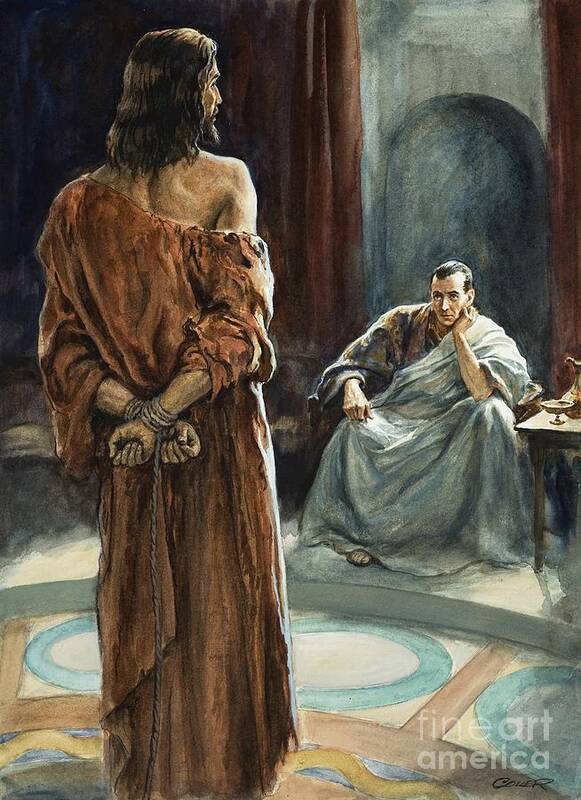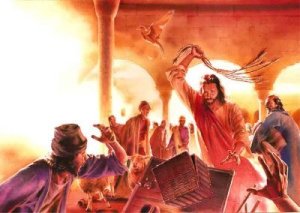Listening for Easter’s Promise
Listening for Easter’s Promise Taken from a Red Rock News Article (Mar 29, 2024) Rev. Dona Johnson | March 31, 2024 The Essence of Christianity is “I have seen the Lord” It’s Sunday morning, it’s the third day since Jesus hung on the cross and died a painful death (Gospel of John 20:1-18). Those who loved him were still in a state of shock. They were most likely still numb wondering what they will do next, how they might live their lives without him. But in the midst of all this grief and uncertainty, there was one astonishing moment in time when only one person in the whole world, one person walking the planet who knew the good news he’s alive. This ultimate “breaking news” would forever change the course of human history. For that one brief moment, this one person was the first one to witness Jesus’ resurrection. Of course this one person was Mary Magdalene or Magdala. The name Magdala in Aramaic means “watchtower” or “strong tower.” If you remember, Jesus had drove out of Mary seven demons and healed her of a demonic trauma. This miraculous healing sealed Mary’s faith of and fidelity in Jesus. The whole Jesus story hinged on what Mary would do with the truth. Would she cherish and keep it to herself or share with others and become what some have called her “the apostle to the apostles? Mary’s faith was a strong tower. She was the first one to reach the garden tomb while it was still dark on Sunday morning. She was the first one to see the stone rolled away and the tomb emptied. As she stood in the garden in front of Jesus’ tomb, her eyes soaked and clouded with tears, she saw who she thought was a gardener. Then the gardener called her name, “Mary!” Mary recognized the tone his voice. She had heard this voice before. Suddenly her heart burst inside and she cried out, “Rabboni,” which means teacher in Aramaic. As she reached out to grab hold of him, Jesus said, “Don’t touch me.” He wasn’t being unkind. There was no need to cling to him. Immediately he sent Mary back to the disciples with the message that what he had so often told them was now about to happen—he was alive. He was on his way to his Father and Mary came with the news, “I have seen the Lord.” Mary’s message is the very essence of Christianity, for a Christian is essentially one who can say, “I have seen the Lord.” Christianity does not mean knowing about Jesus. It means knowing him intimately, knowing his character, knowing his unconditional love for humanity and his heart of justice for the poor, the sick and oppressed. It does not mean arguing about him it means meeting him, listening for his voice. And when you meet Jesus for the first or the thousandth time, you experience the real presence—the incarnation of Jesus Christ. The resurrection is the centerpiece of Christianity. As N.T. Wright has said, It’s how God chose to demonstrate that all the biblical prophecies, the claims made during Jesus’ ministry, which reached their climax on the cross, were true. “The resurrection demonstrates that the cross, so far from being seen as the failure of Jesus’ messianic mission, was its crowning achievement.” So as Christian congregations gather this weekend in Sedona and around the globe to celebrate and worship Jesus who is alive, they look beyond death and the grave and rejoice in the new life God continues to offer the world. No doubt, Jesus won the war on sin and death. Now it is left to Jesus’ followers, empowered by his Spirit, to put into effect his achievement by means of boldly claiming and sharing with all the world, “I have seen the Lord.” Prayer: God of all mercy and grace, your only Son’s death and glorious resurrection have delivered us from the power of death and redeemed all creation. Grant that we may no longer look for the living among the dead and instead daily die to sin and rise to newness of life; through Jesus Christ, our Lord, who lives and reigns with you and the Holy Spirit, one God now and forever. Amen.
Listening for Easter’s Promise Read More »





